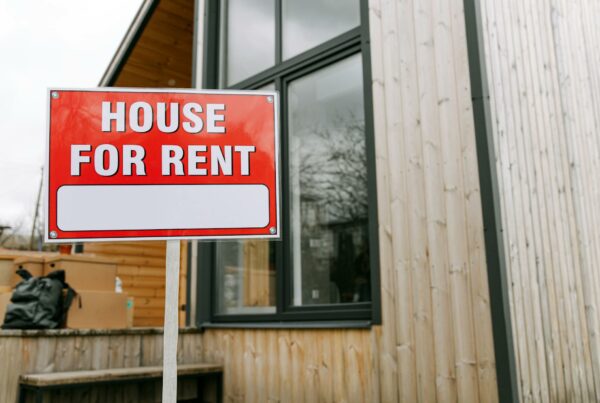Last Updated on August 14, 2023
Are you trying to decide between selling or renting your San Francisco home? Selling can be tempting, as the market in this area is thriving and your home is likely worth much more than it was when you bought it. Homes for sale in the Bay Area have appreciated significantly over the last 10 years.
It is also tempting to keep your home and rent it out. Renting out your home in the San Francisco area can also be an attractive option for homeowners. Renting out your home allows rental income to pay for expenses such as mortgage and taxes, while the value of the property increases. Landlords can essentially let their tenants pay for their property for them. It is important to remember that renting comes with its own set of advantages and disadvantages. Here’s a look at the pros and cons of renting out your home in San Francisco:
Pros of Renting Out Your Home
There are many advantages and challenges of renting a home anywhere, but with the unique market in the Bay Area, it can be hard to know what your best option is.
Rental income is, of course, one of the main reasons people are interested in renting their homes. Renting out your property can provide a steady stream of cash flow, which can help cover mortgage payments, property taxes, and maintenance costs. In a city with high real estate prices like San Francisco, this additional income can be especially beneficial. Over time, your property will be worth more and you can raise the rent for higher cash flows.
Another advantage of renting out a home over selling it is appreciation. San Francisco’s real estate market has historically been one of the fastest growing markets in the country, and by renting out your property, you can potentially benefit from long-term property value growth, leading to increased equity and potential profit upon sale. Your renters will pay your mortgage and property tax for you, while your home and net worth grow in value.
Making your home into a short-term rental is an option that provides cash flow while preserving your property for your own future use. This is a good choice in situations when you need to leave the Bay Area temporarily, such as when you are moving away due to work or personal reasons but plan to return to your home in the future. Renting your home with short-term leases or as a vacation rental allows you to keep the property while generating income. Short-term rentals, such as those for traveling nurses or vacationers, usually generate more income than longer leases.
Potential landlords shouldn’t overlook the tax benefits of owning property. Rental property owners can often take advantage of business tax deductions for expenses such as property management fees, maintenance costs, and property taxes, which can help reduce overall tax liability. These deductions can help reduce the amount of taxes you owe by lowering your taxable income. In some cases, you can also reduce your taxes by making certain energy-efficient improvements to your property, which will also help raise your home’s value and reduce energy expenses.
Cons of Renting Out Your Home
While the benefits of renting out your home can be attractive, it’s essential to consider the potential disadvantages and problems that you might encounter as well.
One of the reasons many potential landlords choose not to rent their homes is the added responsibilities they will face. The time commitment of renting, especially if you choose to rent to vacationers or use short-term leases, can be significant. Becoming a landlord involves responsibilities such as property maintenance, repairs, tenant screening, rent collection, and dealing with tenant issues. It can be time-consuming and may require hiring a property management company if you can’t handle these tasks yourself.
Another downside to owning a rental home is the potential vacancy and loss of income that you may experience. There might be periods when your property remains vacant between tenants, leading to a loss of rental income. This can be particularly challenging if you rely on rental income to cover mortgage payments, maintenance costs, and property taxes. Responsible landlords factor potential vacancy into their calculations before deciding if it will be profitable and financially wise to rent their home.
Homeowners must also consider tenant-related risks to their property. Renting out your home comes with the risk of problematic tenants who may cause damage to the property or miss rental payments. Some tenants even destroy properties intentionally. A home, especially in an expensive market like the Bay Area, can be a huge investment and repairs are costly. In addition, evictions can be expensive and time-consuming in San Francisco, given tenant-friendly laws. Landlords in California must be especially vigilant to screen tenants thoroughly and have excellent insurance.
Wise investors will consider market fluctuations when deciding whether to rent out a home. While historically the area around San Francisco is an excellent market for appreciation and increasing rental rates, it is subject to fluctuations just like other markets. The demand for rental properties may decrease during economic downturns or shifts in the job market, affecting rental rates and occupancy rates.
Finally, consider the wear and tear your home will receive. Renting out your property means it will experience more damage and wear compared to a vacant home. While normal wear and tear shouldn’t be much more extensive than the same wear you incurred when you lived there, you should expect some increased costs. It is normal for renters to care less about your home than you do. In addition, even the most well-screened tenants can cause unintentional damage due to ignorance, neglect, or differing lifestyles. If you are considering short-term rentals, you should factor in the extra cost as frequent turnover of tenants can result in increased maintenance and repair needs.
Weigh the Pros and Cons of Renting Your Home
Before deciding to rent out your home in San Francisco, it’s essential to carefully weigh the pros and cons, consider your financial situation, and assess whether you are willing to take on the responsibilities of being a landlord. It is also important to accurately and carefully predict the income and expenses you may incur. Talk to a local property manager and other investors in your area to find accurate data. Additionally, consulting with a real estate professional or financial advisor can provide valuable insights to help you make an informed decision.





